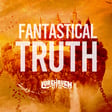Become a Creator today!Start creating today - Share your story with the world!
Start for free
00:00:00
00:00:01

251. Could a Cultural ‘Vibe Shift’ Advance Christian-Made Fiction?
For all the years we’ve kept up with Christian-made fiction, many authors have hoped to “cross over.” They don’t want to reach only readers who are Christians. Instead, they also want to influence unbelievers. This is a great goal, to be sure. But when may our pictures of “unbelievers” not match with reality? And just within the last few years, has the “general audience” shifted so gradually that they might enjoy more overt Christian-made fiction?
Mission update
- Lorehaven Onscreen: Captain America: Brave New World
- Lorehaven Onscreen, coming this Thursday: House of David
- Reviews: The Springborn last week, Above the Circle of Earth this Friday
- Subscribe free to get updates and join the Lorehaven Guild
Concession stand
- This episode does mention politics, but on the way to weightier matters.
- Some ideas wrongly labeled “politics” are really about cultural changes.
- For instance, how we define human beings, marriage, families, religions.
- We loosely define the word “woke” as secular/leftist orthodoxy or tropes.
1. How do we imagine ‘the general audience’?
- By “we,” I mean Christian authors/leaders in the fantastical communities.
- Many authors have long wanted to break out of Christian “bubbles.”
- After all, some Christians don’t like/care about fantastical fiction.
- But we believe “the world” certainly does love these kinds of stories.
- So for marketing reasons, it makes sense to appeal to general readers.
- Christians may also have biblical motive: to be witnesses in the world.
- We may not want to evangelize people, but be pictures of Jesus to them.
- We’d like to step around other people’s prejudice against Christianity.
- And that’s where our attempts may fall flat, or else be subject to bias.
- Based on our own experience, and conversations, we can get myopic.
- We may assume all unbelievers share our negative views of “the church.”
- And when you mix in political tropes, well, we’re very quickly captured.
- Example: another recent mid but strange “He Gets Us” big game ad.
- This ad seemed to think “what is greatnes
